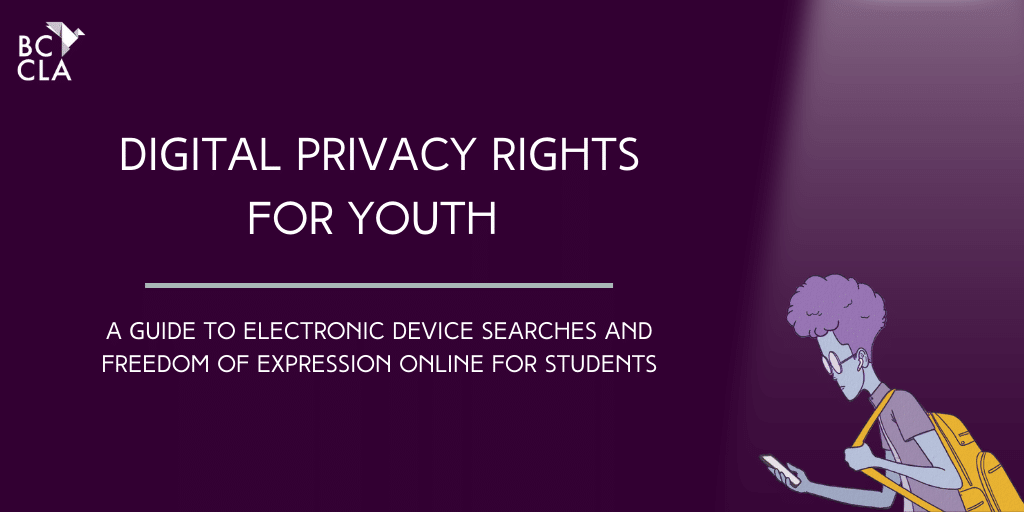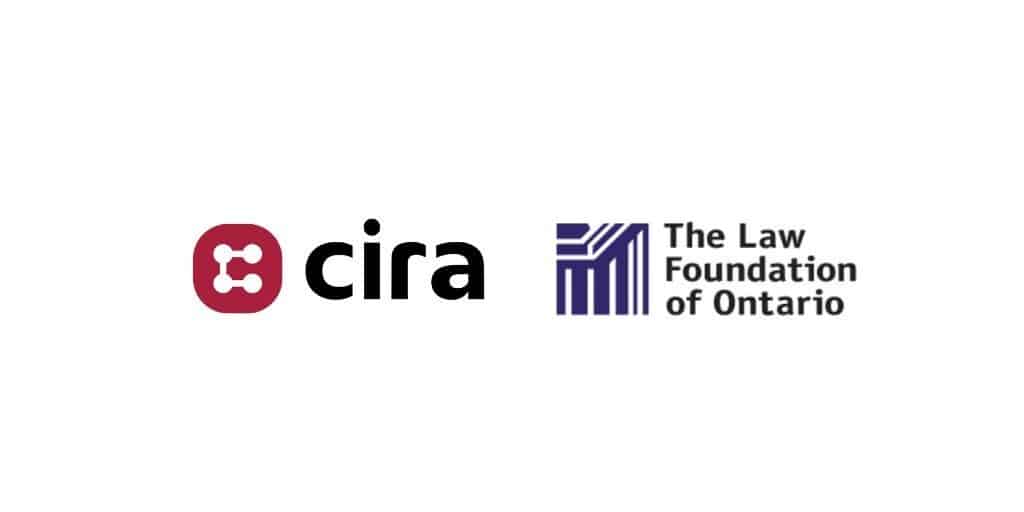
More and more of our lives involve interacting with electronic devices. When you slip your phone into your pocket or laptop into your bag, it is easy to forget the volume of information you’re carrying with you. For many, it is an entire library – years of correspondence, business records, personal conversations, photos, web surfing history, and reading habits – all stored on one device.
The BCCLA has created a set of three fact sheets to educate youth on their digital privacy rights on electronic devices in three areas:
- Personal Electronic Device Searches in Classrooms
- Student Freedom of Expression Online
- Police Searches of Cellular Phones
Download Digital Privacy Rights for Youth
Personal Electronic Device Searches in Classrooms
As concerns regarding student safety at school continue to grow, so too do the responsibilities of educators to oversee and prevent threats to the wellbeing of the student body. What implications does this have for student privacy?
Students already have a diminished right to privacy while in school. School administrators are legally authorized to search students because of their duty to protect them and to provide an orderly learning environment. Given that students are now walking around with a wealth of personal information in their pockets, in what circumstances might school administrators to be authorized to access that information in the name of student safety?
The BCCLA has created a new video to educate youth on their vulnerability to searches and best practices in Canadian classrooms.
The School Act
This extended 2-minute version of our new video looks closer at The School Act (much like Ontario’s The Education Act), a British Columbia law laying out the legal powers and responsibilities of teachers, school administrators, and school boards:
Educational Resources
For many teachers, educating students on how to engage with civil rights is an integral part of their curriculum. We have prepared English and French language lesson plans for students in Ontario and British Columbia:
BRITISH COLUMBIA
ONTARIO
French Lesson Plan Materials
Think Like Judges – Excerpts from R v AM-FR
Gilles v TDSB Summary for Charter Activity-FR
R v Fearon Majority and Dissent Excerpts-FR
R v Kapp Case Summary for Charter Activity-FR
Reasonable or Unreasonable Search Case Studies-FR
Multani Summary for Charter Activity-FR
English Lesson Plan Materials
Gilles v TDSB Summary for Charter Activity
Think Like Judges – Excerpts from R v AM
Reasonable or Unreasonable Search Case Studies
R v Kapp Case Summary for Charter Activity
R v Fearon Majority and Dissent Excerpts
Multani Summary for Charter Activity
This project was supported by a grant from the Canadian Internet Registration Authority’s (CIRA) Community Investment Program. While also financially supported by the Law Foundation of Ontario, the BCCLA is solely responsible for all content. The BCCLA previously worked with CIRA on the popular Electronic Devices Privacy Handbook, a guide to your rights at the border.

